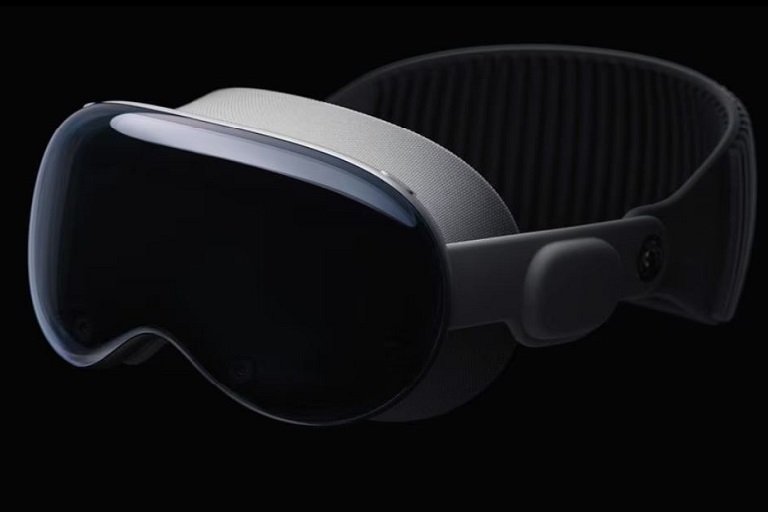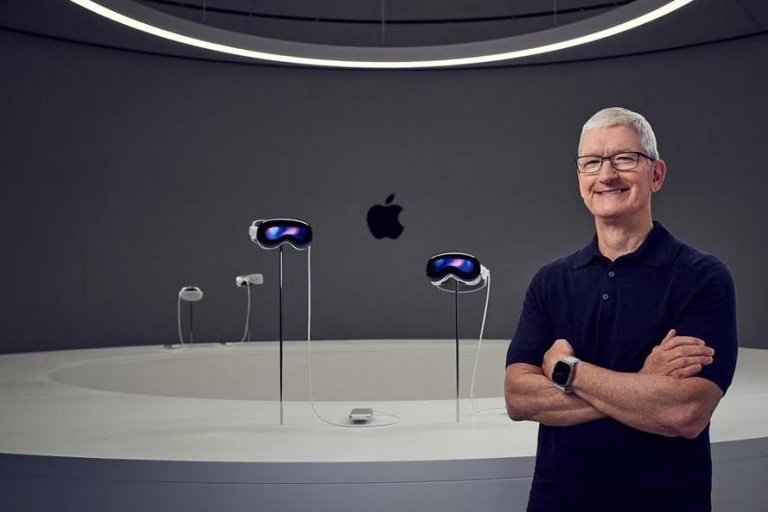Apple on Monday unveiled a costly augmented-reality headset called the Vision Pro in its riskiest bet since the introduction of the iPhone more than a decade ago, barging into a market dominated by Meta.
At its annual developer conference, Apple also introduced a raft of new products and features, including a 15-inch MacBook Air, a powerful chip called M2 Ultra, improvements to its iOS software and a long-awaited tweak to prevent its autocorrect from annoyingly changing a common expletive to “ducking”.
The Vision Pro will start at $3,499, more than three times the cost of the priciest headset in Meta’s line of mixed and virtual reality devices.
The headset will test a market crowded with devices that have yet to gain traction with consumers and put it in direct competition with Facebook-owner Meta after years of clashes between the companies over issues like user privacy and control of developer platforms.
Apple emphasized the novelty of the headset’s augmented reality features as well as the sports and entertainment partnerships it would offer. The device will use a new chip called R1 that will process information from its sensors in less time than the blink of an eye, Apple said.

But the announcements failed to excite Wall Street, which had bid up Apple shares to a record high ahead of the launch. The stock was largely flat in post-market trading.
“Wealthy, techie early adopters will buy the Vision Pro in droves, but still years to move the needle for the mammoth Apple,” said David Rolfe, chief investment officer of Wedgewood Partners that has owned Apple stock since 2005.
Rolfe said there was not yet a mass market for the headset but lauded the product’s technological chops. “Apples Vision Pro reminds me of the very early days of the personal computer revolution. It took many years for the PC to become a mainstream product. Same with VisionPro.”
Users of the Vision Pro will be able to select content inside the goggles with their eyes, tap their fingers together to click and gently flick to scroll, while also using a three-dimensional camera and microphone system to capture videos and pictures than can be viewed in 3D later.
In its most visually striking difference from Meta’s headsets, the device also has an exterior display that shows the user’s eyes to people in the outside world.
The exterior screen goes dark when a user is fully immersed in a virtual world. When a person approaches a user who is in full virtual mode, the headset will show both the user and the outside person to each other, an augmented reality advancement over Meta’s devices, which show a more basic video feed of the outside world.
“It’s the first Apple product you look through, not at,” Apple CEO Tim Cook said.
Apple’s headset will be available early next year in the US with more countries coming later in 2024.











